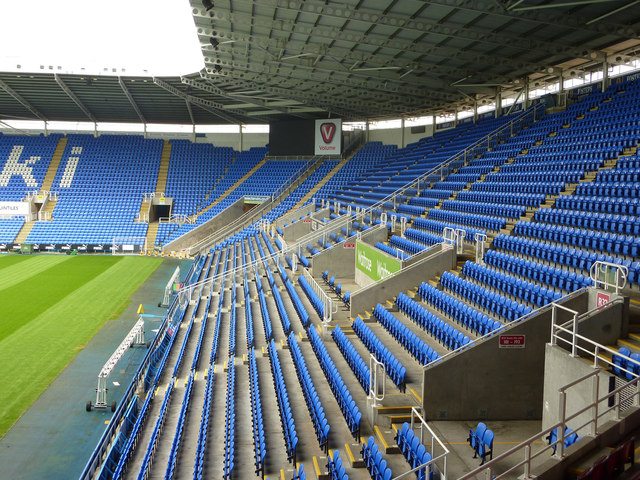Boar Sport’s declassified: the Premier League survival guide
At the start of every Premier League season the three clubs promoted from the Championship are invariably the favourites for relegation. Yet it doesn’t always turn out that way. Things are hardly set in stone and the relegation bug can be avoided. Every year at least one of the promoted sides performs far better than even the shrewdest pundits could have predicted. In the last ten seasons, thirteen top division newcomers have finished at least fourteenth in their first campaign in the top division; a ‘successful’ season for a newly promoted club. The regularity of these successes suggests that there are certain attributes shared by those who not only survive but thrive in the Premier League. In this article we take a look at four keys to premier league survival that could lead to AFC Bournemouth, Watford or Norwich City defying expectations, basking in mid-table mediocrity this time next year.
1. Premier League experience is not vital
Although you would think otherwise, a successful newly promoted club does not have to be managed by a Sam Allardyce or a Harry Redknapp. Rather, nine of the thirteen clubs that succeeded in making the step up were led by men with no prior experience of managing in the top division. An explanation for this could be that these managers bring something new to the Premier League, with tactics an obvious example. Since 2005 a variety of approaches have been successfully implemented by promoted clubs, such as Brendan Rodgers’ free-flowing Swansea City side or Stoke City under Tony Pulis, who were rather more route one. Rodgers’ rise draws parallels with Bournemouth manager Eddie Howe and Norwich City’s Alex Neil, suggesting that the two clubs will not be hindered by managerial inexperience in next season’s Premier League.
At the start of every Premier League season the three clubs promoted from the Championship are invariably the favourites for relegation. Yet it doesn’t always turn out that way. Things are hardly set in stone and the relegation bug can be avoided.
Top division experience amongst the squad is also not a prerequisite for success. In the last ten seasons, clubs such as Wigan Athletic, Stoke and Crystal Palace have been more than competitive in their first season in the top flight despite being light on Premier League experience. Contrastingly, this season saw Queens Park Rangers finish bottom of the table despite having a squad packed with big-name players. QPR’s fall and Palace’s rise shows that even at the highest level of English football a strong collective can be more important than individual quality to a newly promoted club. Bournemouth and Watford will take heart from this, as both have squads light on Premier League experience.
2. Finish second, not first
Believe it or not, in the last decade, teams that finished second have been far more successful than those that won the Championship. In four of the last seven seasons Championship runners-up have ended the next campaign at least twelfth in the Premier League. However, only three times in the last ten years have the Championship winners finished higher than fifteenth a year after claiming the second division crown.
The three teams in question were Reading, Newcastle United and Leicester City, sides who all accumulated 100 points on their way to finishing atop the table. Monumental point hauls that suggested these newly promoted outfits could compete without significantly changing their squads. The other promoted sides who won the Championship but weren’t quite so dominant mistakenly believed that they had the same luxury. Lulled into a false sense of security they failed to strengthen their sides adequately and all seven found themselves in relegation scraps.
On the other hand, finishing second proved to be a blessing in disguise, runner ups seemed to have been more aware of the areas they needed to improve, bolstering their sides in order to stay up. This will serve as a warning to Bournemouth as much as an encouragement to Watford. Despite a style of football that tore numerous Championship teams apart, Eddie Howe’s side will need to adapt to carry on the momentum of this year’s title winning campaign.
3. Money does not guarantee success
It may come as a surprise to many in modern football, but money does not always equal success. This is especially true with clubs promoted to the Premier League, as illustrated by the differing fortunes of Reading, Cardiff City and QPR. In the last two seasons, the latter clubs spent £35 million each on players yet finished rock-bottom of the top division. At the other end of the scale, Reading spent just £5 million throughout their maiden season in the Premier League in 2006/07 and still ascended to a remarkable eighth place. This demonstrates that regardless of money, if a promoted club does not have the right balance within its squad they will struggle to adapt to the Premier League.
Norwich will be all too aware of this. The club spent over £25 million before the 2013/14 season yet found themselves in the Championship a year later. Yet Bournemouth and Watford will be grateful that they will not be forced to break the bank to survive in the top flight. Between them the two sides spent money on just one player before this season’s promotion-winning campaign, with all apart from Bournemouth’s Callum Wilson arriving at the two clubs for free.
It may come as a surprise to many in modern football, but money does not always equal success. This is especially true with clubs promoted to the Premier League
4. Managers need momentum
The word ‘momentum’ has already popped up once or twice, and this next statistic shows how crucial it can be to a promoted club’s chances. Until Nigel Pearson’s Leicester this season, the last eight promoted clubs to experience Premier League success were coached by a man who got them out of the Championship at his very first attempt. In addition to highlighting the short life span of the modern football manager this statistic proves the benefit of having a boss who has never known anything but winning at one club. A winning mentality will give teams momentum going into the Premier League and help them continue their success in a higher division. This will be music to the ears of Norwich fans, who only appointed Alex Neil in January. Neil proceeded to mastermind the club’s rapid rise from mid table to a play-off final victory over Middlesbrough, so the Scottish manager will not be short on momentum going into next season’s Premier League.
The good news for the three promoted clubs is that each possesses at least two of the four attributes outlined above. If were to go buy these four keys to Premier League success Watford appear to have the best chance of troubling the top half of the Premier League next season, as until the recent departure of manager Slavisa Jokanovic the Hornets ticked all four boxes. As always in football though, only time will tell and predictions no matter how well researched, are a dangerous game.


Comments